5. Shaun of the Dead (2004)
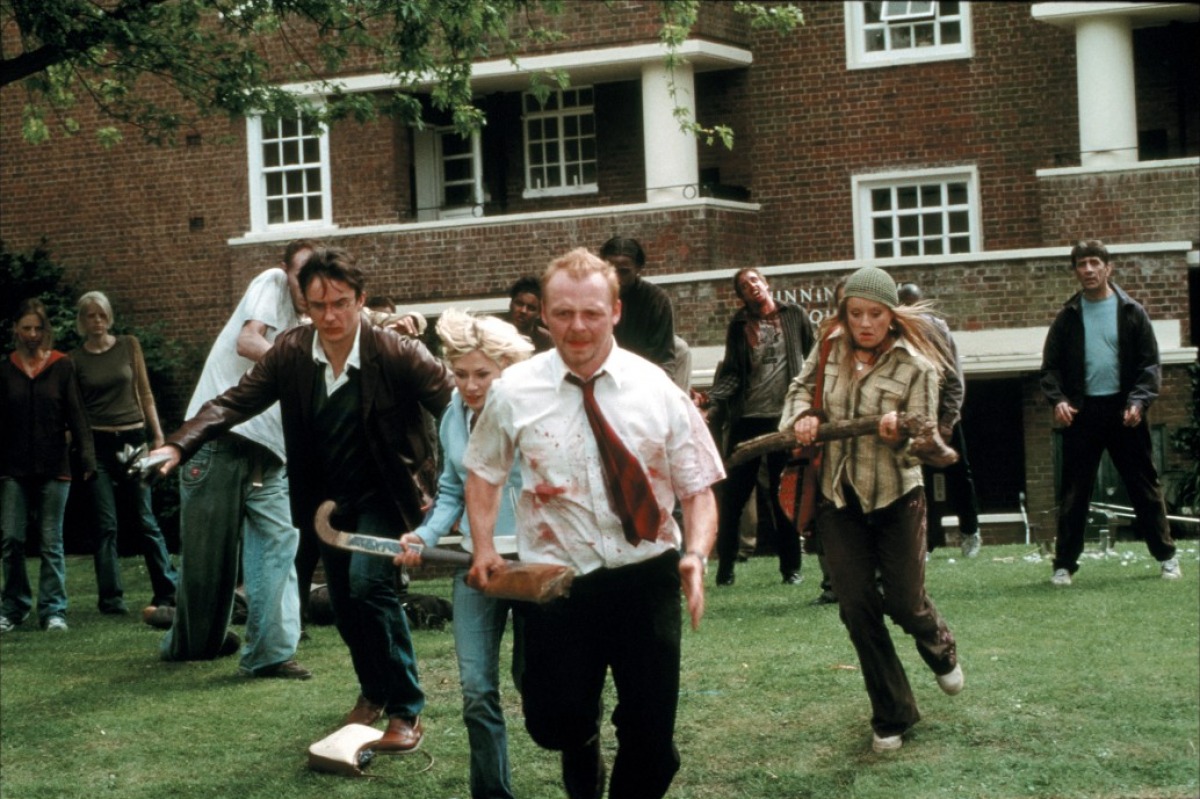
From its cheeky title cleverly alluding to the George Romero zombie apocalypse classic from 1978, Dawn of the Dead, this delightfully pastiche-heavy horror-comedy Shaun of the Dead marked director Edgar Wright and star Simon Pegg’s (they both also co-wrote the knee-slappin’ screenplay) triumphant reteaming—along with Jessica Stevens (who has a great cameo in the film), previously collaborated on the hilarious Channel4 television series Spaced for two glorious seasons—as well as being the first film in Pegg and Wright’s pop cult celebrating Three Colors Cornetto trilogy (2007’s Hot Fuzz and 2013’s The World’s End, being the other two).
If trying to get his act together and be a decent boyfriend to his unfairly ignored girlfriend wasn’t enough of a task for stagnant electronics salesman Shaun (Pegg), there’s also a looming zombie uprising that could just signal the end of days to contend with.
Combining savvy, scatological, and wry English humor, with Romero-style horror, Shaun of the Dead has our hapless hero and his freeloading best mate, Ed (Nick Frost) team up amongst a plague of zombies in London, hatching a plan to rescue Shaun’s estranged girlfriend, Liz (Kate Ashfield), while listening to plenty of Queen and playing a little Tekken 2, and maybe do a little prioritizing and growing up in the process. Or at least get a few pints in. All told, it’s a classic spot-the-reference comedy, and one worth revisiting again and again, got it?
“I gotta do a wee first.”
4. The Phantom of the Paradise (1974)
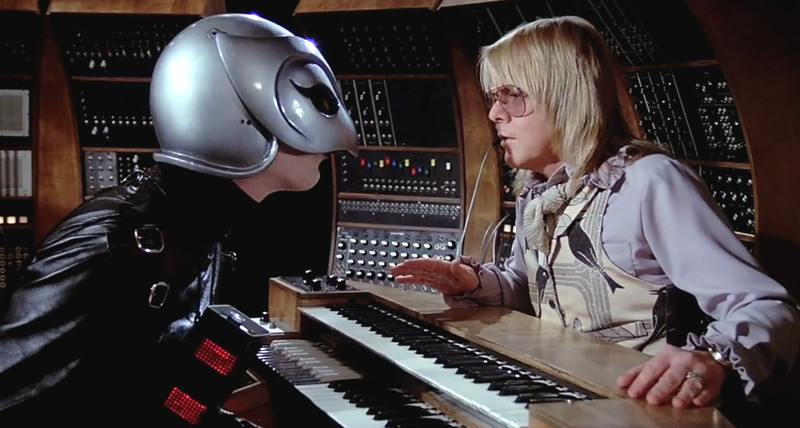
In 1974 De Palma made the ultimate midnight movie, a campy, way over-the-top horror musical that beat the Rocky Horror Picture Show to the punch by a solid year and a half. As a playful piss take on popular music, Phantom of the Paradise nails a lot of the tropes of the era, sending up the Beach Boys, Glam Rock, and a Phil Spector-like impresario named Swan (Paul Williams), amongst them.
The much ballyhooed New Hollywood of the 1970s sired many enterprising cinematic curiosities but few as exhilarating, outlandish and impressively stylish as Phantom of the Paradise. Purposely cribbing plot points from classic Universal monster movies (Frankenstein and Phantom of the Opera being the most obvious), Beauty and the Beast, Faust, The Picture of Dorian Gray, and even a hysterical sendup of Alfred Hitchcock’s notorious shower scene from Psycho, this film is a pure catnip for pop culture junkies.
Williams is wonderful in the role of Swan, and his superb soundtrack, then faddish and now retro attractive, is still gobsmackingly brilliant some forty years on. William Finley in the titular role as the cursed Phantom is also a terrible treat, and the fervent cult that has embraced the film have elevated both Finley and Williams to the stature of icons.
“Brian De Palma has an original comic temperament; he’s drawn to rabid visual exaggeration and to sophisticated slapstick comedy,” wrote Pauline Kael, adding “[Phantom of the Paradise] is a one-of-a-kind entertainment, with a kinetic, breakneck wit.”
For all its crackbrained exuberance and frequently hallucinatory tenor, this musical version of Faust is a feast for the senses; silly, exaggerated, and overblown, this is a film that, by midnight movie standards and beyond, is some kind of carefully constructed masterpiece.
3. Pulp Fiction (1994) tied with Kill Bill (2003-04)
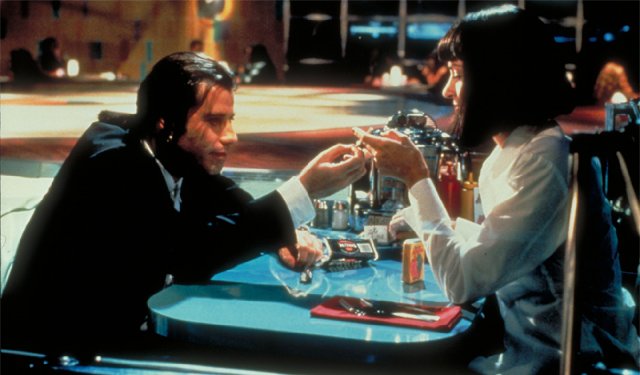
In truth, any number of Quentin Tarantino’s films could overpopulate any list celebrating films that abound in cultural references, and so, for the purposes of this particular list we deemed it best to put two of QT’s most celebrated and celebratory films; the zeitgeist-defining 1994 tour de force Pulp Fiction, and the two-part exploitation/revenge epic Kill Bill.
Few films have been as quoted, as cloned, or as dissected and debated, and yet, even after endless repeat viewings, this hard-hearted and half-joking gem never gets old. The most influential film of the 1990s, QT’s pop culture-saturated dialogue is an outright delight and his visual style is more than just a grab-bag of showy devices — it adds immeasurable dimension to the characters and settings — making for an intricate, artful, yet totally trashy crazy-quilt celebration of cinema culture.
A diverse cast delights in its archetypal noir situations (Samuel Jackson’s hitman who’s gonna come clean and quote the Shaolin Monk, Caine from Kung Fu, John Travolta’s hitman who’s got to take his boss’s sexy wife on a platonic date right out of a Godardian Nouvelle Vague time warp, etc), unafraid of shaggy dog detours and black comic violence and vitriol, this is Tarantino’s first masterpiece.
“Every time my fingers touch brain, I’m Superfly T.N.T., I’m the Guns of the Navarone!”
And then we’ve got Kill Bill. Sure, QT’s super violent genre pastiche lifts its plot completely from François Truffaut’s The Bride Wore Black (1968), but this two-part revenge epic following Uma Thurman’s the Bride (aka Beatrix Kiddo, aka Black Mamba) is an exercise in over-the-top excess, ultra-violence, and fist-pumping fun.
Fun? Well, the gleeful nihilism with which the Bride, a former assassin, seek bloody revenge on those who wronged her at the altar, is a wildly inventive and relentless affair. Sure, the ensuing mayhem is off-putting for non-genre fans, but the fight choreography, endless pop culture references (the Brian De Palma ripoff sequences are stellar!), action set pieces, and revenge fantasy role play is hard to resist.
Admittedly adolescent, OTT, and affectionate to all the schlock it celebrates, Kill Bill warrants wide appeal to all but the squeamish. For everyone else, this is Tarantino at his most reinvigorating, teeth-gnashing, and samurai sword swingin’.
“Wakey wakey, eggs and bakey.”
2. Band of Outsiders (1964)
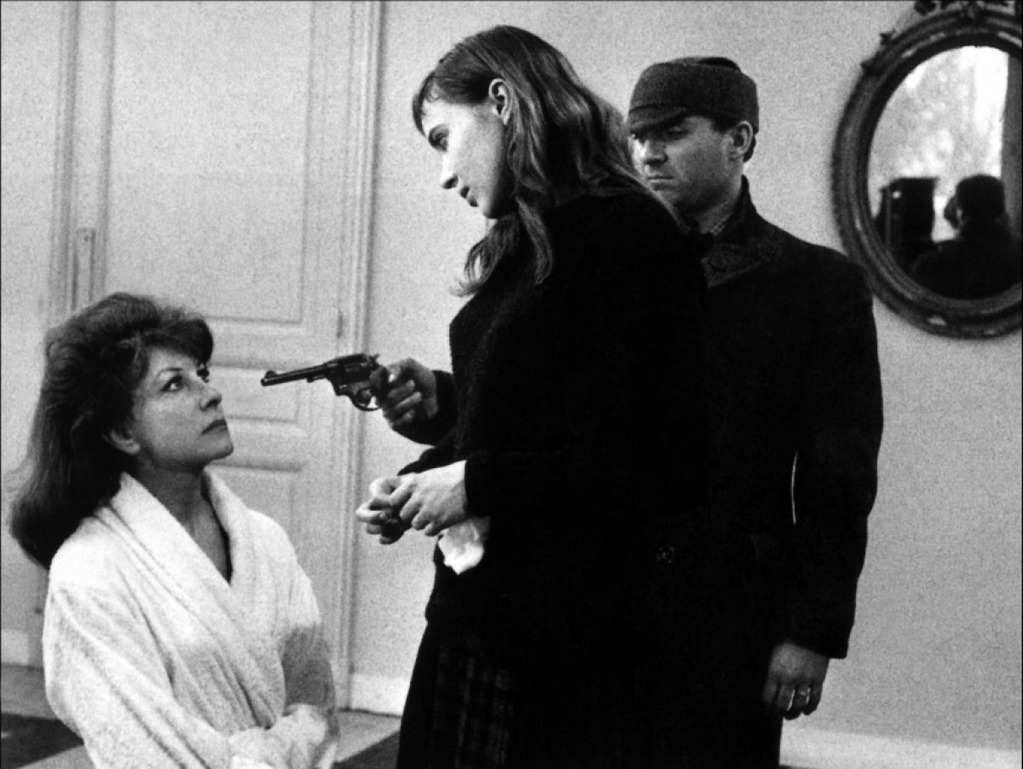
“I hope you go to class and not the movies!” says Madame Victoria (Louisa Colpeyn) to her niece, Odile (Anna Karina) in one of the most beloved, pop culture-packed confections of the French New Wave, Band of Outsiders. As the opening titles gleefully declare, the film is directed by “Jean-Luc Cinéma Godard”, and the comical crime caper that follows is amongst the director’s most playfully self-conscious.
Affected greatly by American B-movies, particularly film noirs, the youth culture of the Left Bank, as well as wide-ranging sounds like R&B, soul music, yé-yé girls pop, and jazz, Band of Outsiders is a compendium of chic popular taste and bright lights lore.
Arthur (Claude Brasseur) and Franz (Sami Frey) are a likeable pair of movie-loving loafers, endlessly aping their favorite on-screen anti-heroes from Hollywood B-movies and Westerns while they doggedly pursue the dreamy Odile (Karina), who eventually joins their team, making them a trio.
Their love of outlaws will lead them into more than just hasty trips through the Louvre and shuffling the Madison in trendy cafés, but to loftier criminal ambitions, namely a heist involving a lot of stolen cash.
While it’s true that Band of Outsiders has gone on to inspire a considerable army of cineaste filmmakers (apart from the aforementioned Tarantino, other filmmakers such as Woody Allen, Bernardo Bertolucci, Hal Hartley, and Roger Michell have each alluded to this movie in some of their most notable works), for those who saw the film back in the day, it was a compendium of what was cool at the time, while also being an atypical Godardian love letter to the City of Lights. The gangster genre would never be the same again, and this postmodern classic would help make pop culture citation a legitimate part of the movies.
1. Ready Player One (2018)
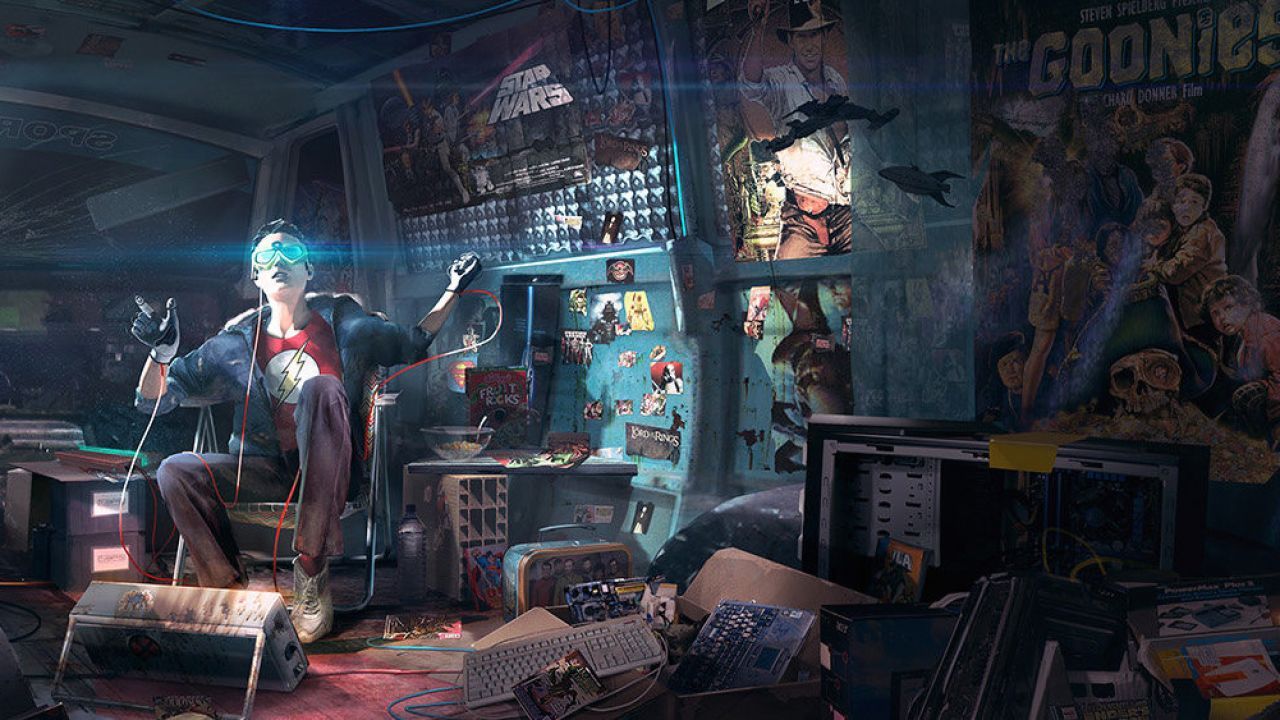
Adapted from Ernest Cline’s pop culture soaked sci-fi best-seller from 2011, and seemingly custom made for much of director Steven Spielberg’s strengths as populist blockbuster architect, Ready Player One is a shit ton of fun.
The best way to enjoy this endless procession of references to films, TV shows, music, toys, anime, video games, and comics of the last few decades, is to turn your brain down low and your inner child all the way up. This is a full on “movie ride” experience and it’s nonstop. Beyond the ten or so minutes of exposition, the ensuing two-plus hours of action never lets up and it is one long o-faced nerdgasm.
Cline himself described Ready Player One’s premise as “what if Willy Wonka designed video games instead of candy?” Veering here and there from Cline’s tome, Spielberg is largely faithful to the source material, or at least its spirit, set in the year 2045 on an overpopulated earth where much of humanity seeks escape into the virtual reality world of OASIS (Ontologically Anthropocentric Sensory Immersive Simulation).
Our hero is young Wade Watts (Tye Sheridan), a gamer who discovers clues to a hidden game within the OASIS that promises the winner full ownership of the OASIS program, and he soon joins several allies to try to complete the game before indentured players working for a large company, Innovative Online Industries (IOI), run by Nolan Sorrento (Sam Mendelsohn), can do the same.
Spielberg and his producers spent years securing the rights for the copyrighted elements used in Ready Player One, and there’s so much to see in the film that a single viewing cannot possibly contain them all (several reviewers and super fans have identified well over one hundred pop culture references in the film).
From a gasp-inducing sequence centered on The Shining, to fist-pumping cameos from the likes of Mobile Suit Gundam, the Iron Giant, Freddy Krueger, Robocop, Bill and Ted, Back to the Future, Twisted Sister, Rush, A-ha, and so much more, including a laugh-out-loud Child’s Play detail (“It’s fucking Chucky!”), Ready Player One is all bombastically merry recontextualizing and controlled explosion of pop-culture eye candy, non-stop nostalgia, and sci-fi spectacle.
Author Bio: Shane Scott-Travis is a film critic, screenwriter, comic book author/illustrator and cineaste. Currently residing in Vancouver, Canada, Shane can often be found at the cinema, the dog park, or off in a corner someplace, paraphrasing Groucho Marx. Follow Shane on Twitter @ShaneScottravis.